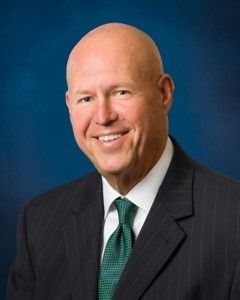A paintbrush in the hand of an accomplished artist will render a piece of art, while that same paintbrush in my hand will likely render a mess. The paintbrush is a tool—it neither paints the picture nor transforms its user into an artist. Technology, like the paintbrush, is dependent on who is using it and to what end. The impact of technology on health coaching is less about the technology and more about the health coach, their training and experience.
Seventy percent of all deaths globally—40 million each year—are due to chronic disease (World Health Organization, 2005). But unlike communicable diseases, which have historically represented the greatest threat to mankind, chronic diseases are about lifestyle choice. In fact, a study published in the Journal of the American Medical Association revealed that the overwhelming majority of premature death and chronic illness in America was the result of three lifestyle choices: dietary pattern, physical activity and tobacco use (McGinnis and Foege, 1993). Therefore, helping people make self-directed lifestyle changes in these three domains is the vaccination against, and response to, the chronic disease pandemic. Interventions based on behavior change and health-coaching skills, like those supported by the ACE Health Coach Certification and the ACE Behavior Change Specialist Program, have been shown to facilitate change (Wolever and Dreusicke, 2016).
Technology in the hands of a trained and experienced health coach can render meaningful outcomes, helping people mobilize their internal strengths and external resources to achieve the wellness and sustainable change they seek. Interventions using mobile phone technologies such as text-messaging has shown to yield very positive results in HbA1c levels in people with type 2 diabetes versus control groups in a year-long random controlled trial (Park, Kim and Kim, 2009). Similarly, mobile phone text messaging was reported to significantly improve adherence to appointments and antiretroviral therapy, short-term smoking quit rates, and selected clinical and behavioral outcomes (Jones, Lekhak and Kaewluang, 2014). Arguably, the most valuable technology in health coaching is the smartphone, which evidence reveals is a difference maker in improving measurable clinical outcomes related to chronic diseases, especially when paired with a skilled and experienced health coach.
Why is the smartphone so important? In addition to providing quick and easy communication, it also acts as a platform for several other wellness technologies that can be relevant to a person’s health-based goals. Furthermore, it is especially effective for those struggling with lifestyle-based chronic diseases such as diabetes, obesity and hypertension. I have built my health coaching practice by leveraging the technology of the smartphone and associated apps, and helping people all over the U.S. that are grappling with the effects of obesity and other associated chronic diseases achieve the changes they seek.
As a coach who resides in the pocket of my clients and is available in the moment of their need, people falsely assume that I have made accountability the priority of my program, but I have not. It’s about engagement and connection, but not connection like a dog on a leash, as accountability-driven programs do. Rather, this connection is more like a kite, soaring in the sky, but also grounded. The smartphone technology facilitates a way to develop relationship and trust, which are needed to help people examine their mindset, values and beliefs, which is essential for sustainable behavior change.
We must remind ourselves that being a successful health coach is all about relationship, which is invariably tied to our ability to listen, and while technology is a superstar at recording data, it can never really listen. A great deal of technology exists beyond the smartphone that can either weigh down or lift up your health-coaching practice. Understanding which technology is propelled by evidence and how it may be used and personalized to propel your health-coaching practice can save you both time and money. Meet me here over the next few months as I unpack specific technologies that may prove valuable to scaling your practice, increasing your ability to serve your clients, stay within your scope of practice and become more profitable.
References:
Jones, K.R., Lekhak, N. and Kaewluang, N. (2014). Using mobile phones and short message service to deliver self-management interventions for chronic conditions: A meta-review. Worldviews on Evidence-Based Nursing, 11, 2, 81-88.
McGinnis, J.M. and Foege, W.H. (1993). Actual causes of death in the United States. Journal of the American Medical Association, 270, 18, 2207-2212.
Park, M.J., Kim, H.S. and Kim, K.S. (2009). Cellular phone and Internet-based individual intervention on blood pressure and obesity in obese patients with hypertension. International Journal of Medical Informatics, 78, 10, 704-710.
Wolever, R.Q. and Dreusicke, M.H. (2016). Integrative health coaching: A behavior skills approach that improves HbA1c and pharmacy claims-derived medication adherence. British Medical Journal Open Diabetes Research and Care, 4, 1, e000201.
World Health Organization. Department of Chronic Diseases and Health Promotion (2005). Preventing Chronic Diseases: A Vital Investment: WHO Global Report. Geneva: World Health Organization.




 by
by 








 by
by